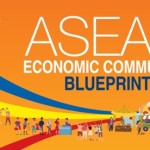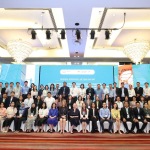Total number of posts 463.
From 08 to 09 March 2024, the 30th ASEAN Economic Ministers' Retreat (AEMR30) took place in Luang Prabang, Laos, with the participation of the ASEAN Secretary-General, Economic Ministers of ASEAN countries and Timor Leste (attending as an observer). The Vietnamese delegation attending the Conference included representatives of the Ministry of Industry and Trade and Ministry of Foreign Affairs, led by Deputy Minister of Industry and Trade Nguyen Sinh Nhat Tan.
At the Conference, the Ministers approved 14 priority economic cooperation initiatives (PEDs) proposed by Laos during its ASEAN Chairmanship year 2024 under the theme "ASEAN: Promoting Connectivity and Resilience", focusing on three main orientations: (1) Recovering and connecting economies; (2) Creating an inclusive and sustainable future; (3) Transforming towards a digital future. The Lao PEDs in 2024 are assessed to include both the legacy and continuation of ASEAN's achievements in 2023, and to take into account new contents and issues. The conference also agreed on the annual priorities for 2024 in the economic channel, focusing on the following areas: trade in goods, trade facilitation, customs, trade in services and movement of natural persons, investment, finance, competition, intellectual property, e-commerce; micro, small and medium enterprises, etc. In addition, the Ministers also approved the ASEAN Services Facilitation Framework (ASFF).
The Ministers also focused on discussing many other important issues for ASEAN economic cooperation such as the negotiation status of upgrading the ASEAN Trade in Goods Agreement (ATIGA), negotiations of the ASEAN Framework Agreement on the Digital Economy (DEFA), the ASEAN Framework Agreement on Competition, upgrading the ASEAN-China Free Trade Agreement (ACFTA), implementation of the Regional Comprehensive Economic Partnership (RCEP), the implementation of sustainability initiatives in the ASEAN Economic Community, recommendations of the High-Level Task Force on ASEAN Economic Integration related to the implementation of the ASEAN Economic Community Blueprint 2025, the development of the ASEAN Economic Community strategic plan for the period 2026-2030, the development of the ASEAN Community Vision 2045 and ASEAN's strategy for emerging issues in ASEAN + 1 FTAs, etc.
The conference acknowledged positive signals in the ASEAN economic picture in 2023, amid the uncertain world context. According to data from the ASEAN Secretariat, ASEAN's gross domestic product (GDP) is expected to grow by 4.7%, higher than the world average of 3.1%. In terms of trade in goods, as of the third quarter of 2023, trade in goods reached 2.6 trillion USD. In terms of attracting foreign direct investment (FDI), in the third quarter of 2023, FDI inflows were about 41.1 billion USD. ASEAN tourism also recovered significantly, attracting 101.9 million visitors in 2023, an increase of 136.2% compared to 2022.
On the sidelines of the Conference, the Ministers discussed with the ASEAN Business Council (ABAC), noting ABAC's priorities in 2024 as well as ABAC's recommendations to promote a favorable business environment in ASEAN in the coming time.
Speaking at the conference, Vietnam expressed its support for Laos' priority economic cooperation initiatives during its ASEAN Chairmanship year 2024; committed to closely coordinating with Laos and other ASEAN countries to complete the set goals and plans, contributing to the overall success of ASEAN 2024. Vietnam also emphasized the priority given to recovery and connectivity activities of economies, especially prioritizing resources for new negotiations, negotiations to upgrade ASEAN agreements and between ASEAN and partner countries.
The 30th AEMR Conference concluded successfully, setting out directions and creating a solid foundation for economic cooperation in ASEAN in 2024, as a preparation step for the 56th ASEAN Economic Ministers' Meeting scheduled to take place in mid-September 2024./.
(Multilateral Trade Policy Department)














